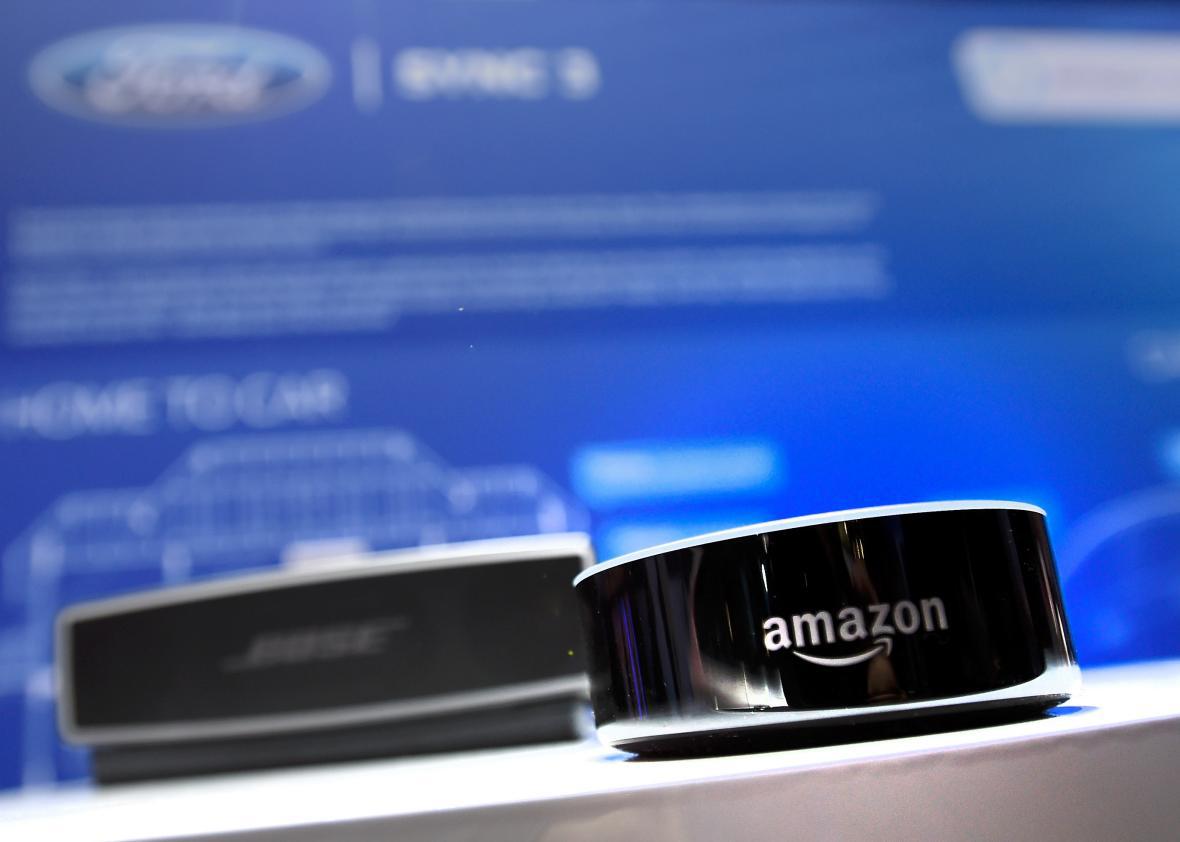If there was any doubt that Amazon was leading the smart home speaker space, this holiday season has squelched it. While the company hasn’t shared exact sales numbers, it’s clear that the Amazon Echo was an incredibly popular gift this year.
Amazon trumpeted its success in a somewhat ambiguous press release. The company says it was a “record holiday season” for Amazon device sales, and that “millions more devices” were purchased worldwide this year than during the 2016 holiday season. On its website, the $50 (currently $30) Amazon Echo Dot was the best-selling product sitewide, across any category. Several Echo products, including the Echo Spot, Echo Buttons, and Echo Dot, sold out completely.
Amazon’s holiday sales success isn’t a huge surprise—it already dominates the space. Based on data at its disposal, consumer research firm Strategy Analytics estimated that Amazon would have roughly 70 percent of the smart home speaker market by the end of this year, but more recent estimates put it even higher, at 75 percent. Amazon’s Echo sales more than quintupled from third quarter 2016 to the same time period in 2017—despite a growing threat from competitors, including Google and its Google Home speaker line.
Amazon’s market strategy is largely to thank here: Amazon has debuted a number of new Echo models this year, including a second-generation Echo with Dolby audio, and the Echo Show, which has a screen for watching short videos and how-tos. Coming in at a variety of price points with different feature options, Amazon’s smart speakers and virtual assistant Alexa are satisfying a pain point of consumers: Giving them the ability to stay connected without having a screen in front of their faces all the time. The popularity of the cheaper Echo Dot this year seems to indicate that its lower price point and versatility—it’s an excellent option for other rooms in the house, for those that already own at least one Echo product—were key as well.
Amazon’s vague stats aren’t the only indicator of its dominance this holiday season. According to app downloads, Amazon beat out its rivals over the holidays. As of writing, the Amazon Alexa app was the most popular app on both iOS and Android’s Google Play. On Android, the Google Home app did make its way to second place—so it would look like the Google Home was a popular gift, too. But on iOS, Google’s companion app didn’t even crack the top 10 most popular apps. While Amazon’s devices were a cross-platform favorite, those already embedded in the Google ecosystem were more likely to invest in its smart home speaker products. This is likely what we can expect when Apple comes out with its own Amazon Echo competitor, the HomePod, in early 2018. Apple’s $350 smart home speaker was supposed to debut before the holiday season, but unspecified delays set the launch back until some time next year. Apple almost certainly lost out on some of its target audience to Amazon Echo buyers over the past few months, and that’s helped Amazon establish this significant dominance in the smart speaker space.
However, there’s still room for growth, and still room for new players to take a piece of the action. The smart home market is expected to be a $25 billion industry by 2020, and only 11 percent of households currently own a smart home speaker (although that number could be as high as 15 percent after the holidays). And according to National Public Media’s Smart Audio Report, 45 percent of those households plan to purchase at least one more. While Amazon had a head start, Google, with an excellent virtual assistant of its own, is poised well for 2018: It has three smart speakers now, ranging from $30 to $400. And when Apple’s smart speaker debuts, it will surely cut into Amazon’s market ownership, too—at least among those wanting a high-end speaker in their home.
But for now, it’s clear that Amazon has a distinct advantage over its competitors largely because it was first to market. The Echo debuted in 2014, but only really started picking up noticeable momentum in 2016, once Alexa’s built-in and third-party skills expanded to better replicate things you’d normally do with your phone. Amazon has years of experience over its competitors and partnerships with numerous companies and apps, from Harman Kardon to Domino’s. And given the mostly positive (and sometimes hilarious) experiences of existing Echo owners, it doesn’t have to worry too hard about those customers jumping ship to another platform. Alexa has become a valued addition in our homes—millions and millions of them.
